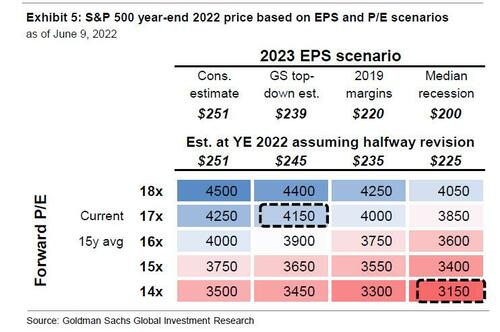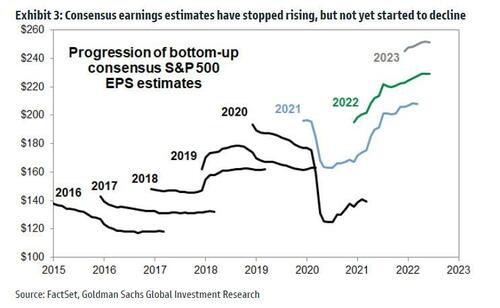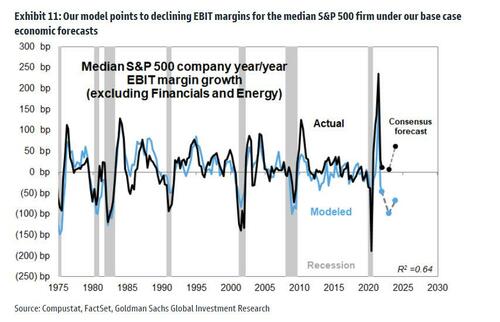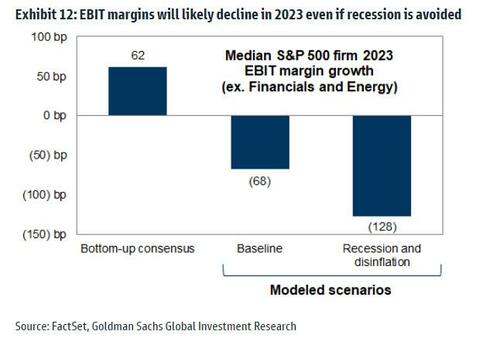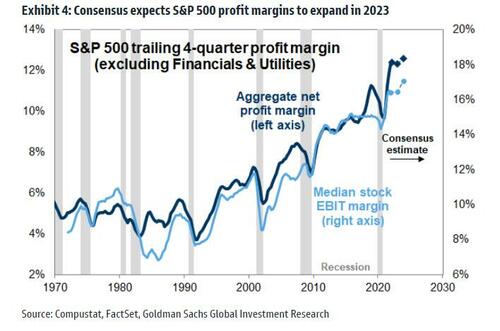Justice Kavanaugh joined, in full, the two most significant cases of the term. In Dobbs, Kavanaugh did not join the Chief’s concurrence-in-judgment. And in Bruen, Justice Kavanaugh, as well as the Chief, fully endorsed the majority’s reasoning. To be candid, I did not expect both votes. Even after the leak, I had my doubts about whether Kavanaugh was prepared to overrule Roe. His concurrence in Ramos certainly provided the predicates to jettison Roe, but it was no certain thing. Moreover, I worried that if Kavanaugh bit the bullet in Dobbs, he would chart some middle-course for Bruen. But no, I was wrong. Wrong, wrong, wrong. Both majority opinions had five solid votes.
Still, Justice Kavanaugh wrote concurrences in both cases. And, in my view, the Kavanaugh concurrence is the new Kennedy concurrence. Let’s start with Bruen.
First, Kavanaugh observes that the Court “employs and elaborates on the text, history, and tradition test.” So far, so good. Indeed, Kavanaugh has personally pushed the “text and history” approach in several cases, back to his service on the D.C. Circuit. Still, in a recent concurrence, Judge Newsom (CA11) cast doubt on “tradition” prong of this text:
I say “largely” because it has never been clear to me what work “tradition” is supposed to be doing in the tripartite “text, history, and tradition” formulation. The duly adopted and ratified text of the Second Amendment, as originally (and thus historically) understood, governs the interpretive inquiry. To the extent that “tradition” is meant to stand in for the original (i.e., historical) public meaning of the words on the page, it is duplicative. And to the extent that it is meant to expand the inquiry beyond the original public meaning- say, to encompass latter-day-but-still-kind-of-oldish understandings-it misdirects the inquiry.
I’m with Newsom.
Second, Kavanaugh “write[s] separately to underscore two important points about the limits of the Court’s decision.” There’s that word again: “underscore.” Like Justice Kennedy before him, a Kavanaugh concurrence with two votes has the power to constrain a majority opinion.
Third, Kavanaugh suggests that the shall-issue regimes in 40-odd states are permissible. But he did not simply endorse”background checks” and “firearms safety course,” as did Justice Thomas’s majority opinion. He listed another criteria that “shall-issue” regimes can require:
By contrast, 43 States employ objective shall-issue licensing regimes. Those shall-issue regimes may require a license applicant to undergo fingerprinting, a background check, a mental health records check, and training in firearms handling and in laws regarding the use of force, among other possible requirements.
The requirement of a “mental health records check” was not at issue in this case. Yet, Kavanaugh reached out to decide that this requirement was constitutionally permissible. I fear that this exception will be exploited by states to probe into a person’s confidential medical history to deny carry licenses. Indeed, the California Attorney General’s guidance specifically cited the Kavanaugh concurrence on this point:
Bruen recognizes that States may ensure that those carrying firearms in their jurisdiction are “‘law-abiding, responsible citizens.'” See also id. (Kavanaugh, J., concurring) (States may “require a license applicant to undergo a background check, a mental health records check, and training in firearms handling and in laws regarding the use of force, among other possible requirements”). Accordingly, in assessing whether an applicant has established “good moral character,” issuing authorities should recognize that Bruen does not eliminate the duty or authority of local officials to protect the communities that they know best by ensuring that licenses are only issued to individuals who—by virtue of their character and temperament—can be trusted to abide by the law and otherwise ensure the safety of themselves and others. The investigation into whether an applicant satisfies the “good moral character” requirement should go beyond the determination of whether any “firearms prohibiting categories” apply, such as a mental health prohibition or prior felony conviction.
Later, Kavanaugh refers to the “mental health records check” as an “objective licensing requirement.” Far from it.
Likewise, the 6 States including New York potentially affected by today’s decision may continue to require licenses for carrying handguns for self-defense so long as those States employ objective licensing requirements like those used by the 43 shall-issue States.
Now, government bureaucrats who are hostile to guns will have vast discretion to abridge a person’s constitutional right based on nebulous judgments about mental health. I have to think that Kavanaugh’s dicta here was affected by the assassination attempt, in which a person with apparent mental health problems tried to kill the Justice.
Finally, Kavanaugh block-quotes the two paragraphs from Heller that the lower courts have treated as the only relevant portions of the case.
“Like most rights, the right secured by the Second Amendment is not unlimited. From Blackstone through the 19th-century cases, commentators and courts routinely explained that the right was not a right to keep and carry any weapon whatsoever in any manner whatsoever and for whatever purpose. . . . [N]othing in our opinion should be taken to cast doubt on longstanding prohibitions on the possession of firearms by felons and the mentally ill, or laws forbidding the carrying of firearms in sensitive places such as schools and government buildings, or laws imposing conditions and qualifications on the commercial sale of arms. [Footnote 26: We identify these presumptively lawful regulatory measures only as examples; our list does not purport to be exhaustive.]
“We also recognize another important limitation on the right to keep and carry arms. Miller said, as we have explained, that the sorts of weapons protected were those in common use at the time. We think that limitation is fairly supported by the historical tradition of prohibiting the carrying of dangerous and unusual weapons.” Heller; see also McDonald.
Kavanaugh and Roberts went out of their way to reiterate these limitations.
Now, onto Dobbs.
First, Part I of Justice Kavanaugh’s concurrence addresses the policy debate about abortion.
Abortion is a profoundly difficult and contentious issue because it presents an irreconcilable conflict between the interests of a pregnant woman who seeks an abortion and the interests in protecting fetal life. The interests on both sides of the abortion issue are extraordinarily weighty.
But after this discussion, Kavanaugh pivots:
The issue before this Court, however, is not the policy or morality of abortion. The issue before this Court is what the Constitution says about abortion.
Part I reminded me of Kavanaugh’s American Legion concurrence: a stray digression on policy debates that has no bearing on the bottom line.
Second, in a footnote, Kavanaugh identifies one limit on abortion laws:
In his dissent in Roe, Justice Rehnquist indicated that an exception to a State’s restriction on abortion would be constitutionally required when an abortion is necessary to save the life of the mother. See Roe v. Wade (1973). Abortion statutes traditionally and currently provide for an exception when an abortion is necessary to protect the life of the mother. Some statutes also provide other exceptions.
I’m not sure that Justice Alito’s opinion squarely stated a life-of-the-mother exception was “constitutionally required,” but I think that is a fair reading of the majority.
Third, Justice Kavanaugh gave some props to his former boss, whose handiwork he voted to overrule:
I have deep and unyielding respect for the Justices who wrote the Casey plurality opinion. And I respect the Casey plurality’s good-faith effort to locate some middle ground or compromise that could resolve this controversy for America. But as has become increasingly evident over time, Casey‘s well-intentioned effort did not resolve the abortion debate. The national division has not ended.
Fourth, Justice Kavanaugh–like in Bruen–reaches out to decide novel questions:
But the parties’ arguments have raised other related questions, and I address some of them here. . . .
Second, as I see it, some of the other abortion-related legal questions raised by today’s decision are not especially difficult as a constitutional matter. For example, may a State bar a resident of that State from traveling to another State to obtain an abortion? In my view, the answer is no based on the constitutional right to interstate travel. May a State retroactively impose liability or punishment for an abortion that occurred before today’s decision takes effect? In my view, the answer is no based on the Due Process Clause or the Ex Post Facto Clause. Other abortion-related legal questions may emerge in the future.
“Not especially difficult”? Generally, courts can decide if a case is difficult after reviewing arguments from both parties. But here, Justice Kavanaugh looked at important issues in the abstract. Suddenly, everyone has become an expert on the right to travel. I have no idea how a right to travel under the Privileges and Immunities Clause may apply to abortion cases. I would not prejudge the issue.
Moreover, Kavanaugh’s discussion of “liability or punishment” is not limited to the criminal context; he also seems to suggest the civil context is at issue. (The Ex Post Facto Clause applies to the former, and not the latter.) There is ongoing litigation over Texas’s fetal heartbeat law that does seek to impose civil liability for actions taken prior to Roe. But now, the deciding justice in Dobbs has weighed in on the issue.
Why? Why decide these questions, without the benefit of any briefing, that are almost certainly likely to come to the Court. Here, I think Justice Kavanaugh cannot let his opinions be seen as too radical, so he takes steps to moderate his views. I don’t have any problem with this approach in the abstract. But I do object when this desire for middlingness compels a judge to summarily adjudicate questions that are not presented–such as the mental-health checks in Bruen and the right to travel in Dobbs. Alas, by now, these aspects of Kavanaugh’s jurisprudence are entirely predictable. If ever the price of a fifth vote, as the saying goes. And the lower courts will dutifully follow.
The post The Kavanaugh Concurrences in <i>Bruen</i> and <i>Dobbs</i> appeared first on Reason.com.
from Latest https://ift.tt/aYpHF8J
via IFTTT






